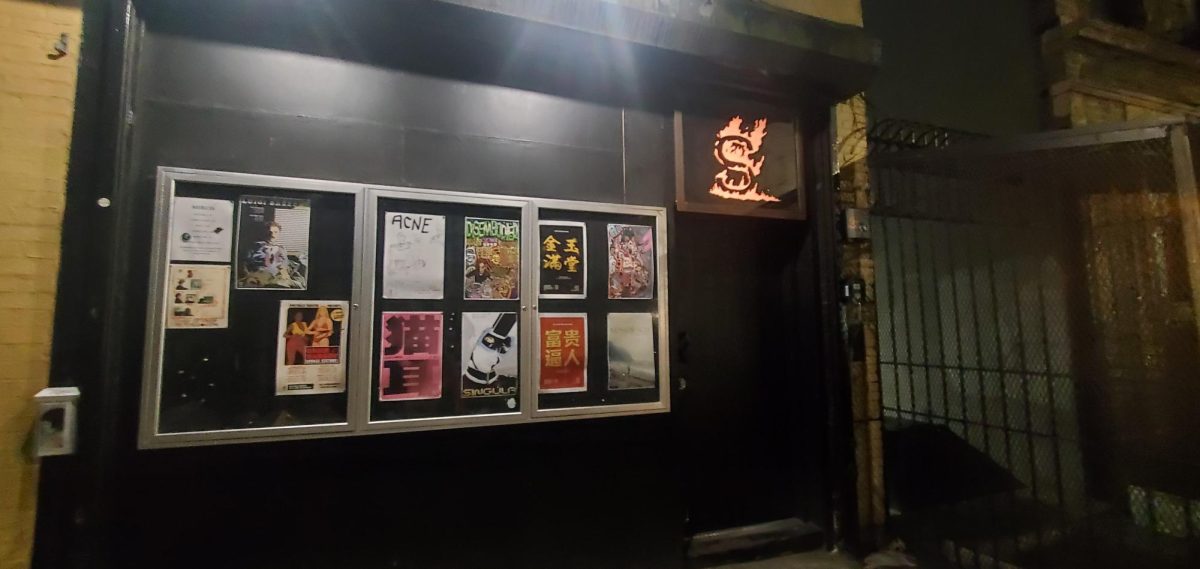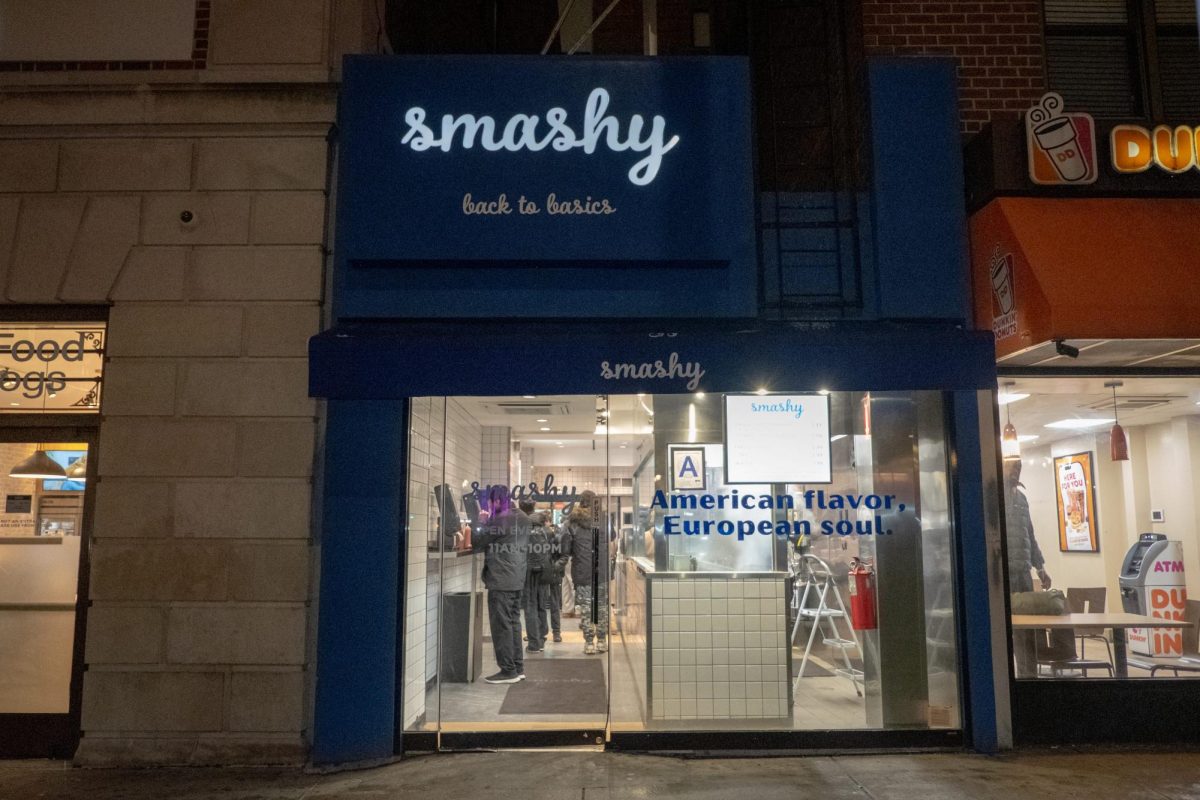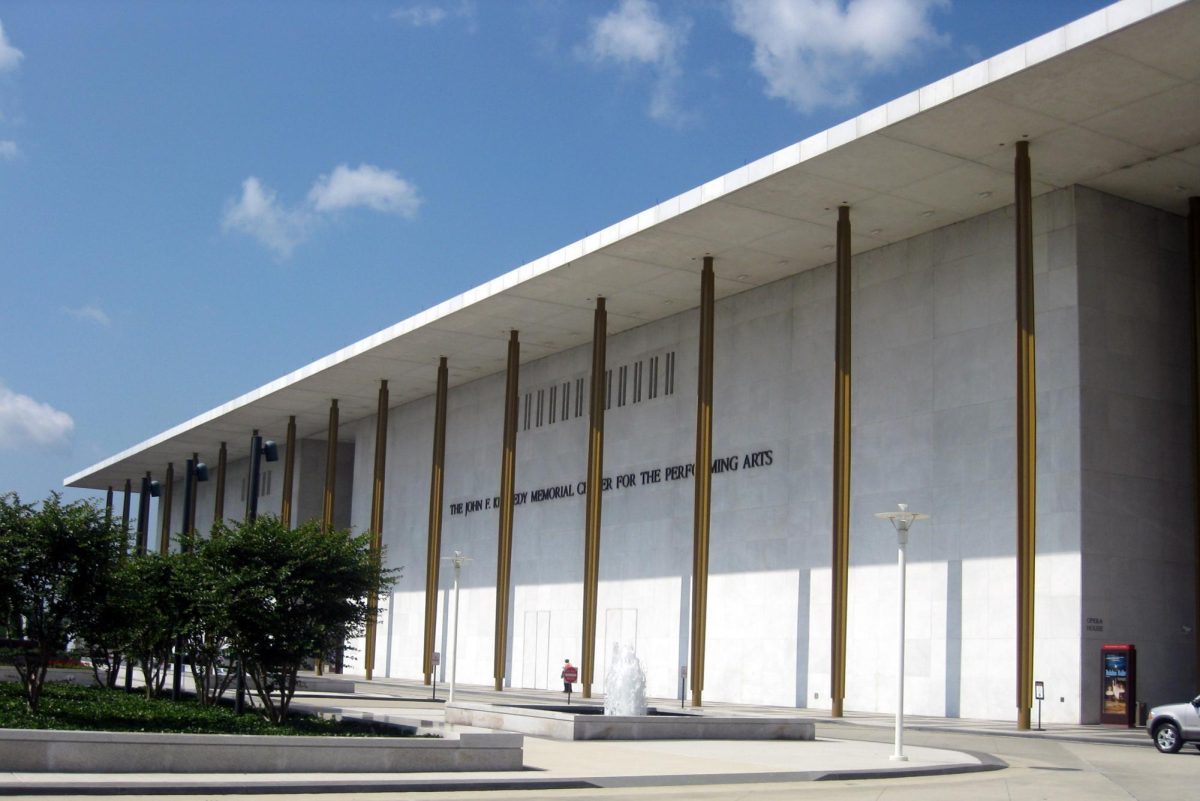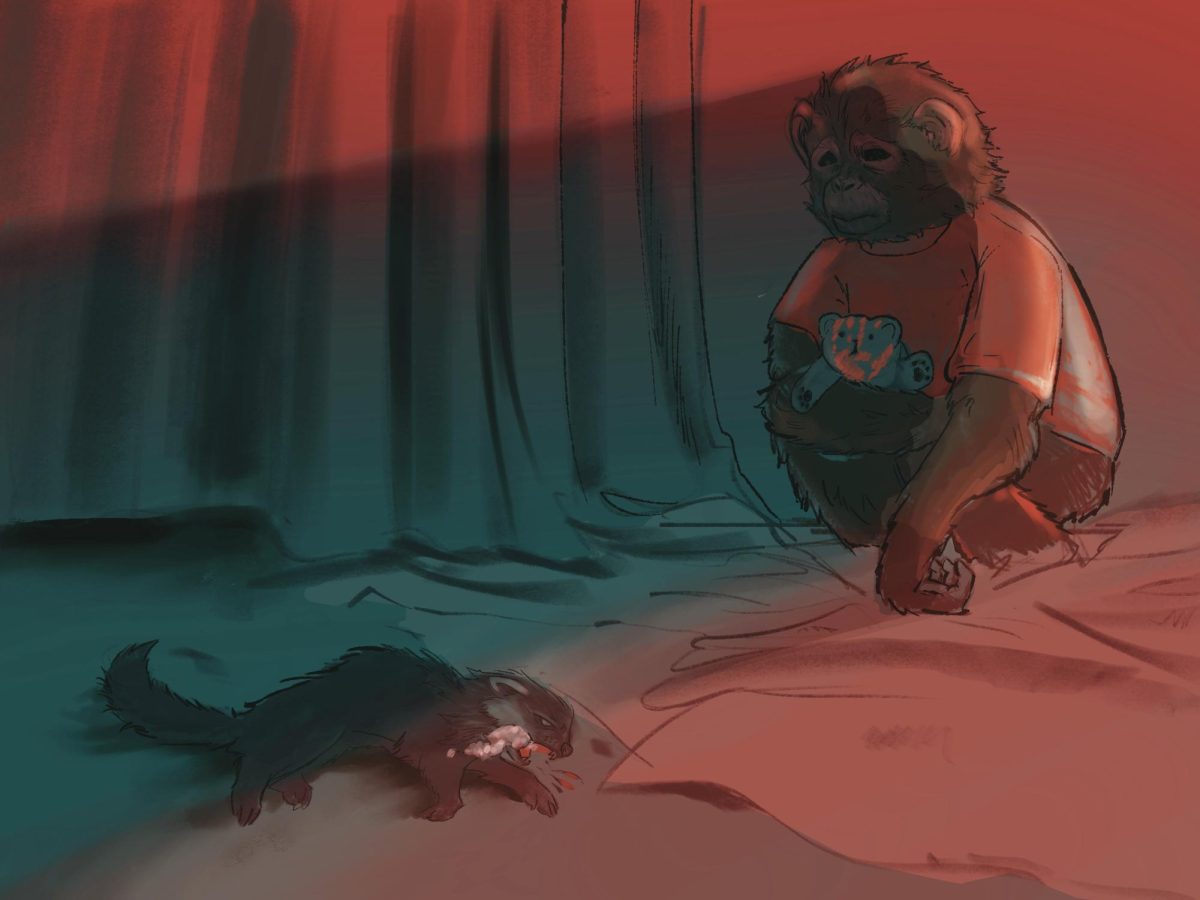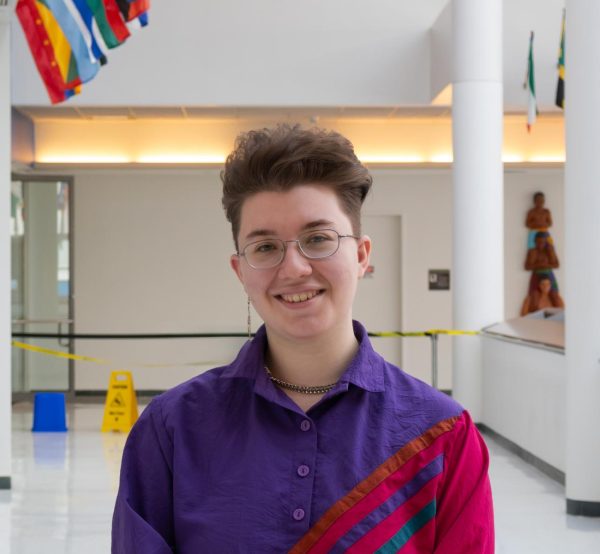The price of a ticket to Spectacle Theater hasn’t changed in the 14 years since a former Williamsburg bodega was converted into the entirely volunteer-run independent movie theater in 2010. The space, which survived a 2015 rent increase through fundraising in a neighborhood volunteer Abyn Reabe called “the mecca of that kind of mass gentrification” now has 35 seats, is open seven nights a week, makes its own trailers and posters and broadcasts a radio show of film soundtracks and scores on Thursdays.
A single ticket — as opposed to a monthly membership — is normally $5, and $10 for special events.
But for one of Spectacle’s newest programming series, that $5 is a suggested minimum donation. That’s because it’s a months-long showcasing of Arab and Palestinian filmmakers that began in November, with all proceeds raised going to the Palestinian American Community Center in Clifton, New Jersey, and the nonprofit Islamic Relief USA.
Each month has centered on a different element of Palestinian experience and artmaking. “Films of Palestinian Resistance” in November drew from archival sources and the work of Palestinian-American academic, critic and activist Edward Said, whose 1978 book “Orientalism” is a foundational text in postcolonial scholarship of South West Asia and North Africa.
In December, Spectacle screened “The Native and the Refugee: Palestine, Turtle Island and Spaces of Exception,” an interview-based project by filmmakers Matt Peterson and Malek Rasamny that drew parallels between the experiences of Palestinians living in refugee camps and other Indigenous communities. The same month, “You Killed Me And I Forgot to Die: Films of Palestinian Dignity” expanded the scope of the programming series into fiction filmmaking in addition to nonfiction.
“It’s very easy to look at the situation and talk about Palestine from a perspective of victimization, and only as in relation to an occupying military state, this apartheid state,” Abyn Reabe, who led the series programming, said.
“Which is all true and important to highlight, but I think we wanted to try and screen films that also spoke to just Palestinian experience and history and culture that didn’t just center the narrative around that relationship to the trauma of the situation, as opposed to celebrating the other aspects of normal life and the culture of that region.”
Reabe, who began going to Spectacle in 2015, became a volunteer in 2022 and emphasized that he spoke as an individual rather than representing the non-hierarchical collective as a whole.
He estimated Spectacle is currently composed of 30-40 active volunteers. Volunteers apply through email and are primarily responsible for running the ticketing booth and generally branch into programming after six months.
The latest installation of Spectacle’s Palestinian and Arab filmmakers series was “You Killed Me and I Forgot to Die: Palestine in Lebanon in February” featuring films all directed by Arab women, all but one made with the support of the Palestine Cinema Institute and the General Union of Palestinian Women. The programming itself was also a collaborative effort. Reabe was assisted by experimental documentary filmmaker and assistant professor of film theory at George Mason University Samirah Alkassim. He also mentioned speaking over Zoom to director and GUPW founder Khadijeh Habashneh and the daughter of late director Randa Chahal Sabbag.
Reabe said the series’ focus on Lebanon and the legacies of its 1975 civil war was intended to, “give further context to an understudied part of the world, I think especially in America, which is ironic given how much American involvement in that region is driving some of those things.”
In the next part of the series, Spectacle will host “Gathered In Love and Rage: A Palestinian Film Showcase,” a short film program from Batikh Batikh, a Philadelphia-based pop-up cinema and gallery that supports Southwestern Asian and North African women and LGBTQ+ artists. Screenings will take place on April 13, 17 and 26. All proceeds will go to the Gaza Mutual Aid Collective.
“We are [a] movie theater, and if we want to try and engage with a political or ethical or ideological subject, then the best way for us to do that is through our programming,” Reabe said. He added that Spectacle attracts people who are “on the same page as far as being more left leaning, interested in engaging in some kind of, if not anti-capitalist, at least, attempting to engage with means of production and, and spaces that are at least attempting to be a little outside those systems.”
When asked why he believed filmgoers had shown their support over the years, he described what he saw as a hunger for smaller niche spaces like Greenpoint’s Film Noir Cinema and Harlem’s Mayselles Documentary Center, the latter of which screened the first documentary made in Gaza on April 3 to raise money for the Palestine Children’s Relief Fund.
When it comes to Spectacle, “there’s not really anything like it in New York City,” Reabe said.


